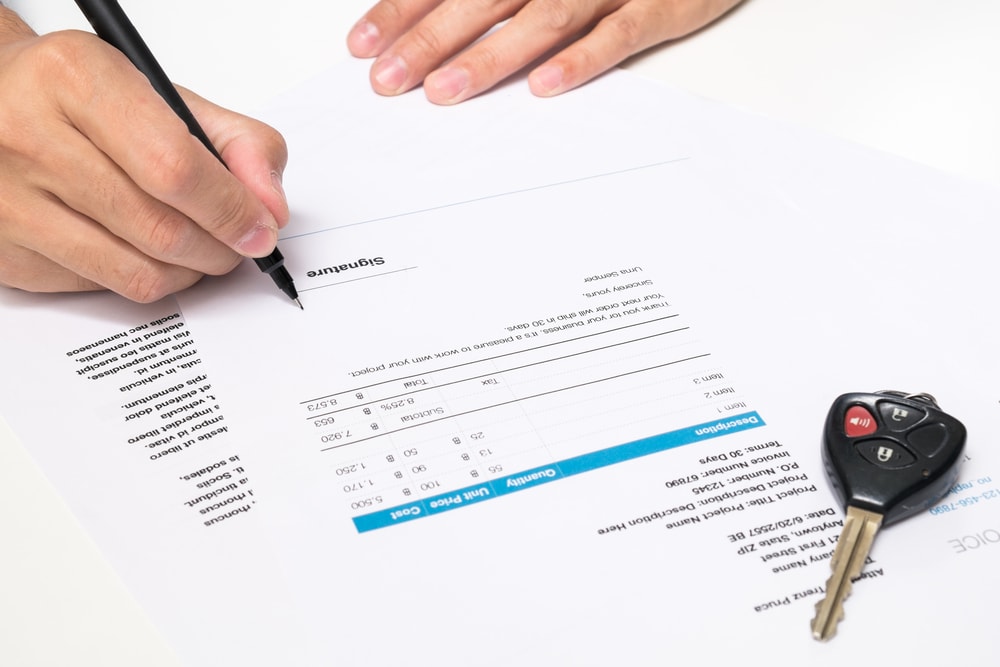Essential Paperwork for Buying a Used Car

In the vibrant world of car buying, acquiring a used car can seem like a straightforward journey, but it's actually a path laden with important decisions and paperwork. Whether you're dipping your toes into the secondhand car market or are a seasoned veteran, understanding the essential documents involved is crucial for a smooth, transparent, and legally sound purchase. This article delves into the paperwork you'll encounter and the steps you'll need to take to ensure you're making a smart and secure investment.
The Buying Process and Required Documents

1. Vehicle Title: This is the cornerstone document that proves ownership of the car. It includes vital information like the Vehicle Identification Number (VIN), current owner's details, and any liens recorded against the car.

It's crucial that the title:
- Is free from errors or alterations, as this might indicate fraudulent activity.
- Shows no liens, or if there are liens, it's understood that they'll be paid off before the title is transferred to you.
2. Bill of Sale: While not always legally required in every jurisdiction, this document is highly recommended to document the purchase transaction. It details:
- Car's VIN
- Purchase price
- Date of sale
- Seller and buyer's information
- Any conditions or warranties
📋 Note: In some places, the bill of sale must be notarized to be legally valid.
3. Vehicle History Report: This isn't a document you obtain but one you should request or research. Reports from services like Carfax or AutoCheck provide insights into the car's history:
- Accident records
- Ownership history
- Title status
- Odometer readings
- Service records
Getting Ready for Transfer of Ownership

4. Transfer of Title Form: Often, you'll need to complete this form to formally transfer ownership. Ensure:
- All details are correct
- Signatures are in the right places
- It matches the state's requirements
📝 Note: In some states, this form might be combined with the title itself.
5. Odometer Disclosure Statement: A statement signed by the seller, detailing the mileage at the time of sale. It's a crucial element in proving the car's condition and potential future resale value.
Registering the Used Car

6. Vehicle Registration Application: Once ownership is transferred, you'll need to register the car in your name. This process involves:
- Submitting ownership documents
- Paying fees and taxes
- Providing proof of insurance
7. Proof of Insurance: A no-brainer, but critical step in the process. Depending on your location, you might need to present proof of insurance to get your car registered or to drive it off the lot.
8. Emissions and Safety Inspections: Some states require a vehicle to pass an emissions test or safety check before it can be registered or driven on public roads.
| State | Emissions Test | Safety Inspection |
|---|---|---|
| New York | Required for certain counties | Not Required |
| California | Required for certain areas | Not Required |
| Texas | Required for certain areas | Required |

9. Odometer Readings: Again, ensuring the odometer disclosure matches the current mileage is crucial, especially when state law requires this disclosure to be included in the registration process.
Miscellaneous Considerations

10. Service Records: Not legally required but invaluable for understanding the car's maintenance history:
- Recent repairs
- Regular servicing
11. Temporary Registration: If you need to drive the car before completing the registration process, temporary tags or a 30-day permit might be available. They're crucial to avoid driving an unregistered vehicle.
The acquisition of a used car is more than just a financial transaction; it's an investment in mobility and freedom, entwined with legal obligations. Ensuring you have all the required documents in order not only protects your purchase but also sets the foundation for a transparent relationship with your new vehicle.
By understanding and securing these essential documents, you're not just buying a car; you're safeguarding your investment and ensuring the process is smooth, secure, and legally sound. From the moment you decide to buy a used car until you register it, these steps are vital to a hassle-free experience.
Do I need to get a vehicle history report for every used car I consider?

+
No, but obtaining one can provide peace of mind by detailing the car’s history. It helps identify potential red flags or simply assures you of a clean record.
What if the title has a lien listed?

+
If the car has a lien, it must be paid off before the title can be transferred to you. Ensure this happens to avoid future complications.
Can I register a car without insurance?

+
In many places, no, you cannot. Insurance is often a prerequisite for vehicle registration, reflecting the shared responsibility of road safety.